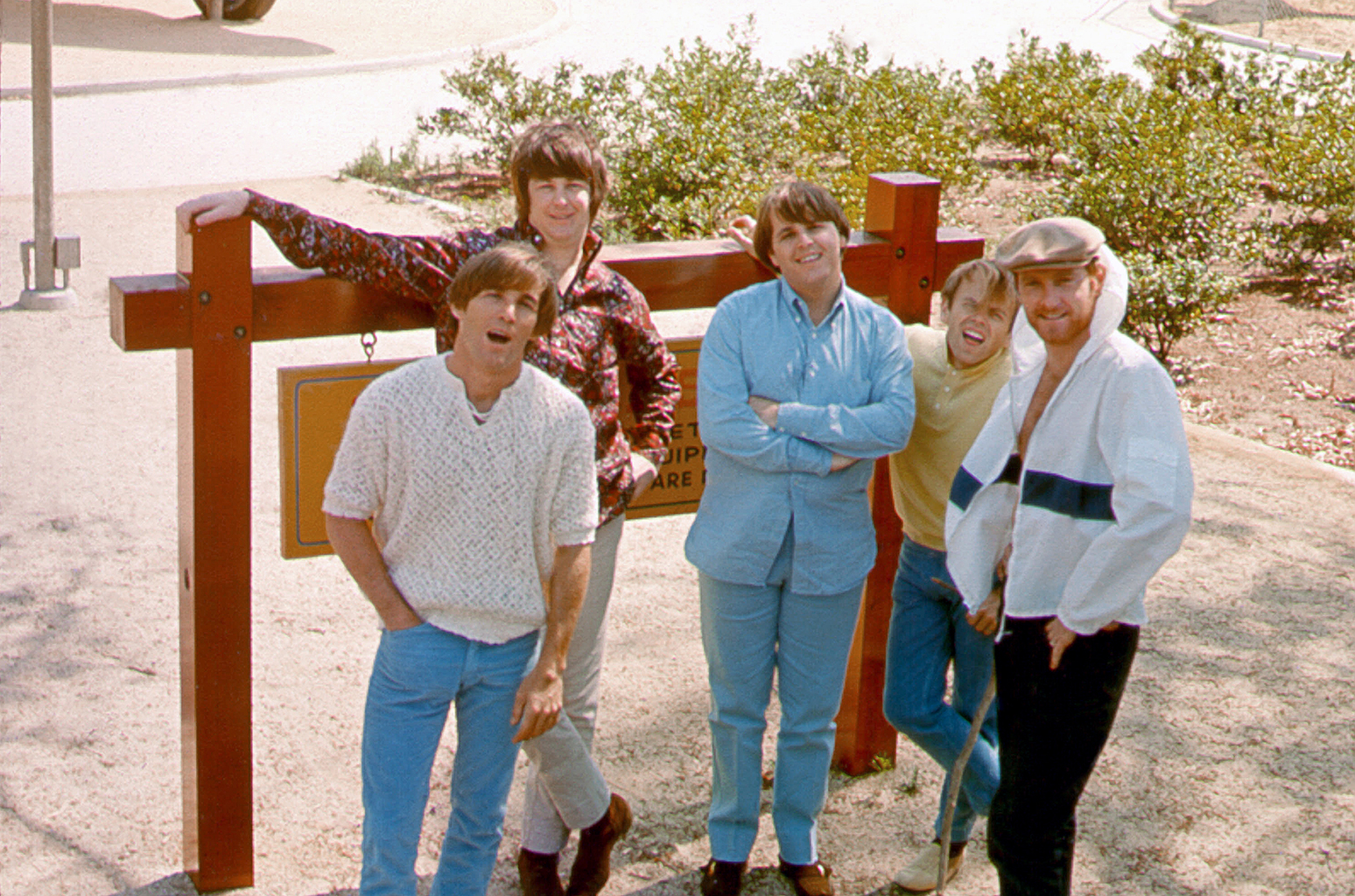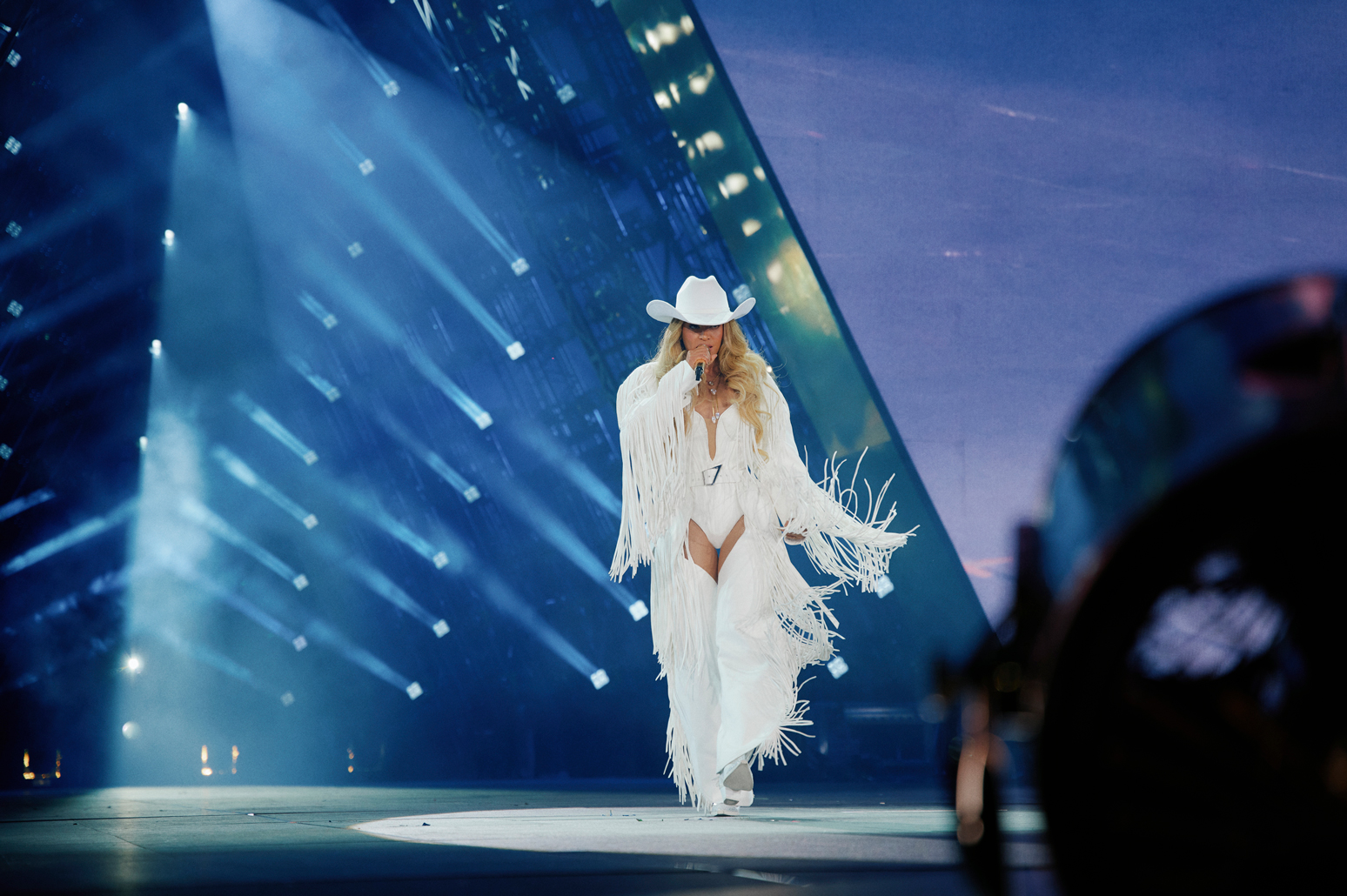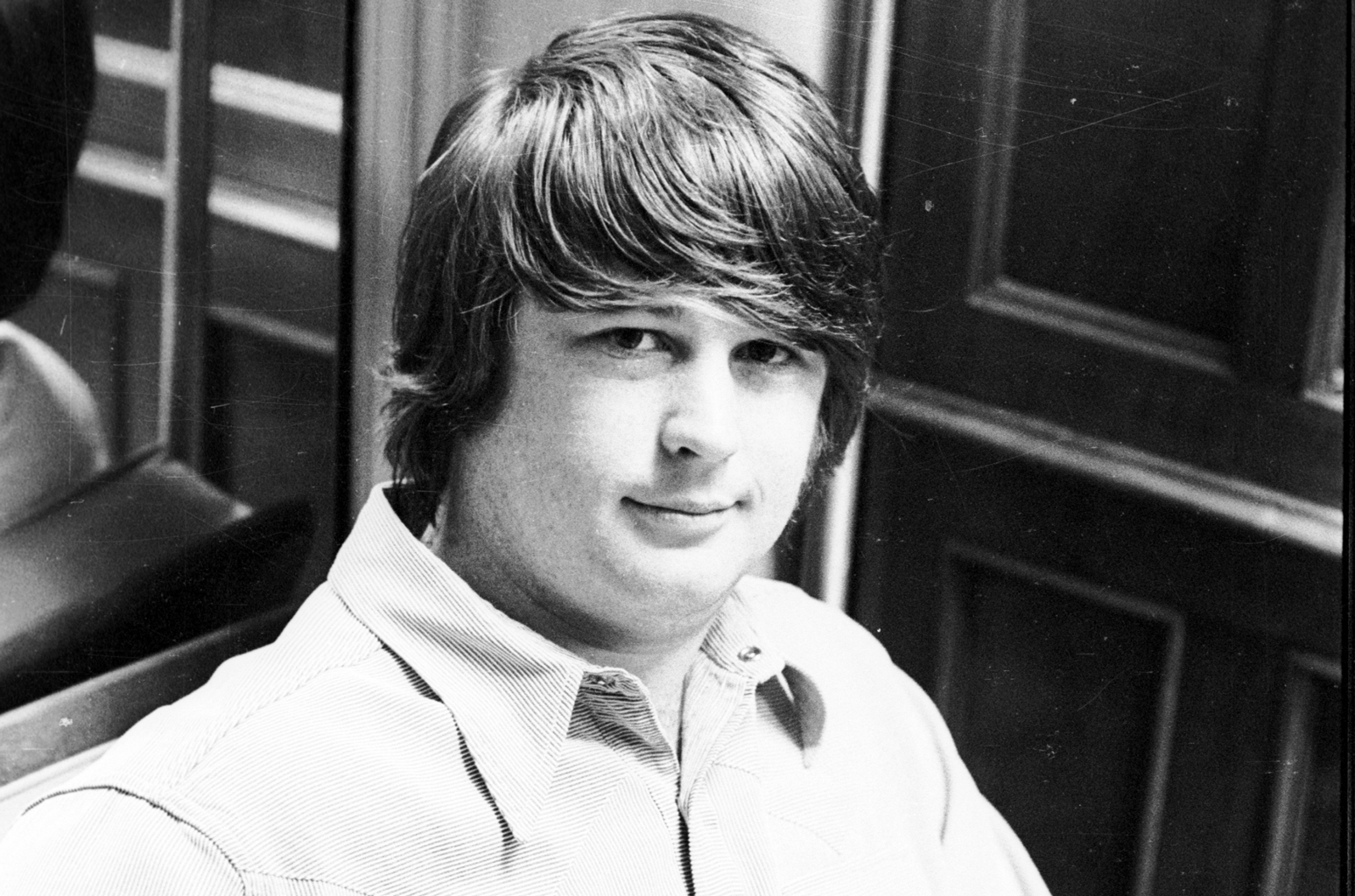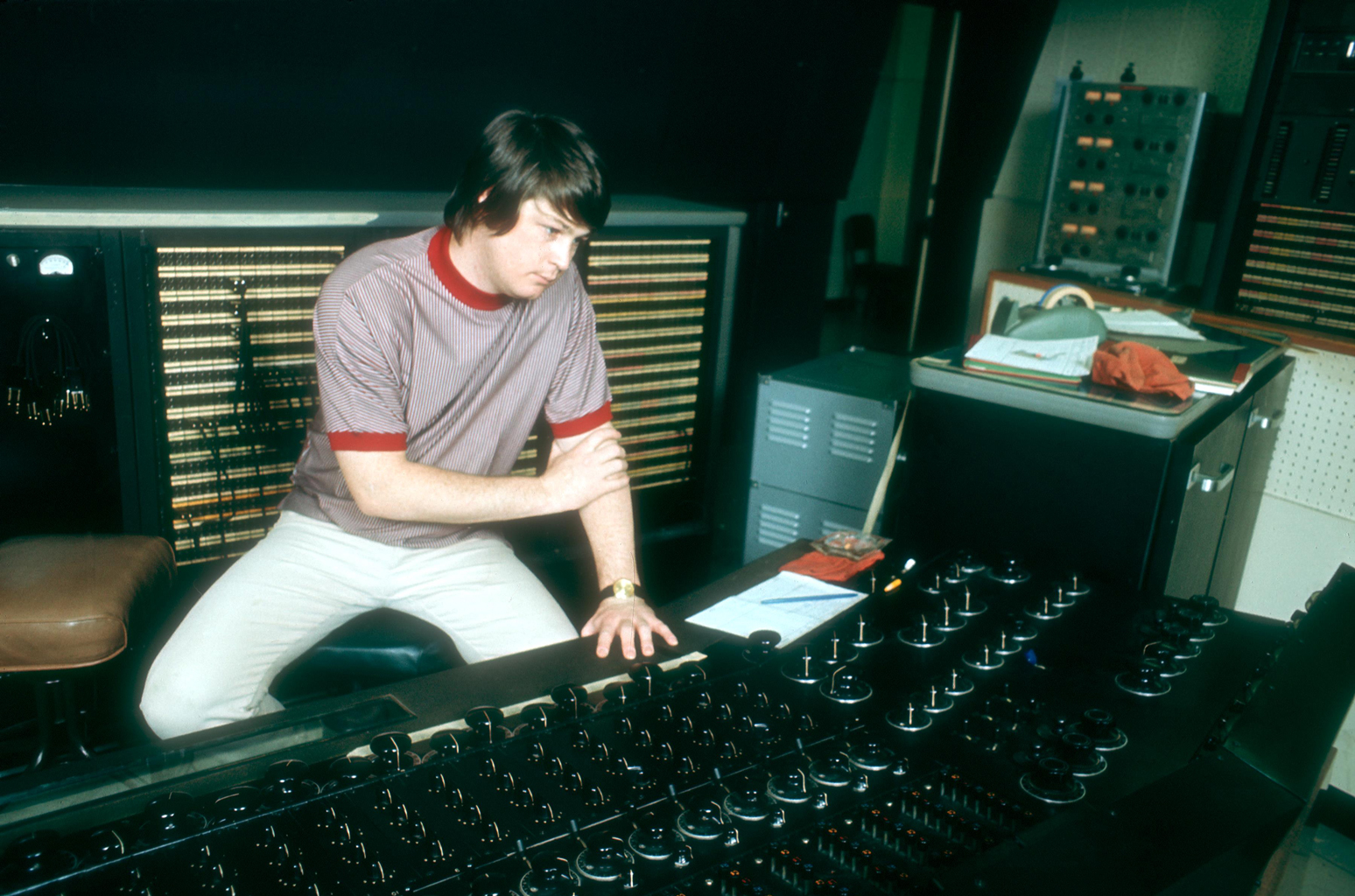Entertainment
For The Velvet Sundown, Kneecap and Bob Vylan, Controversy Has Been Good for Business

The Velvet Sundown, the AI-generated retro rock group that launched out of nowhere in June, has done something many real bands struggle to achieve: Gain worldwide media attention that converts into streams at Spotify and other streaming platforms.
In the week ended July 3, The Velvet Sundown’s catalog of 26 songs — spanning two albums — generated 2.59 million streams globally, according to Luminate. That’s a staggering 399% increase from the previous week. The surge followed a flood of online coverage at music trades, mainstream newspapers, and popular YouTube channels, all intrigued by the novelty — and the ethical implications — surrounding an artificial band that diverts attention (and royalties) from actual musicians.
After more than two weeks of media coverage, the buzz hasn’t died down. The Velvet Sundown has been featured in major publications, including articles at BBC.com and a long-form think piece in The Atlantic. In an era when viral fame often fades in hours, the sustained interest — from both the media and the public — is remarkable. Just six weeks ago, the band had zero streams. Today, it boasts 1.3 million monthly listeners on Spotify, up from approximately 300,000 following a viral Reddit post about the band on June 24. To capitalize on the momentum, The Velvet Sundown will release yet another album on Monday (July 14).
The notoriety of being an AI band has translated into modest real-world success. By Tuesday (July 8), the attention had propelled The Velvet Sundown’s track “Dust in the Wind” to No. 1 on Spotify’s Viral 50 chart — a measure of recent popularity and social engagement — in the U.K., Ireland, Israel, Iceland and Sweden, and into the top 10 in Australia, Canada, Denmark and a handful of other countries. “Dust in the Wind” also landed on iTunes’ top tracks list in Switzerland (No. 3), Poland (No. 9), Austria (No. 14), Canada (No. 20) and Sweden (No. 23), according to Chartmetric.
The Velvet Sundown represents a reality of the music business in 2025: Getting online attention, whether complimentary or critical, helps an artist rise above the noise and find listeners. Notoriety — being known for something negative — isn’t necessarily a liability.
For all the people turned off by The Velvet Sundown’s artificial origins, there may be other listeners who stick around, says Phillip Lybrand, creator of the AI-generated band Hoverborg. The group’s album The Good Stuff, a collection of catchy pop-punk songs, used Lybrand’s lyrics but was otherwise conceived entirely on the generative AI platform Udio. The Good Stuff received some positive press and online streams early on, but coming clean about the band’s origins actually added to its momentum. “I’ve sold through Bandcamp more copies of it digitally, and the physical CD and vinyl, since letting people know it was AI-generated,” Lybrand says, adding that only one person has asked for a refund.
Even though streaming platforms are awash in AI-generated content — Deezer estimates that 18% of its daily uploads come from AI — the success of The Velvet Sundown stands out. The band’s albums, complete with evocative, surrealistic artwork, do an excellent job of capturing the look and feel of a psychedelic folk-rock band. Importantly, the songs reveal a level of expertise that is typically absent from hastily created AI music, says author and audio engineer Bobby Owsinski: “It does take a fair amount of skill and a fair amount of time to come up with that.”
Real-life music groups Kneecap and Bob Vylan have also grabbed worldwide attention for controversy as of late. Kneecap, a hip-hop trio from Northern Ireland, gained notoriety in April for the anti-Israel comments it made during its performance at Coachella. More media impressions followed: Kneecap split with its agent, Independent Artist Group, after Coachella, and band member Mo Charra (born Liam Óg Ó hAnnaidh) was indicted on a terrorism charge in the U.K. for allegedly displaying a Hezbollah flag at a concert in London. Charra was released on bail on June 18, but the controversy wasn’t over.
Both Kneecap and Bob Vylan ran into trouble following their appearances at Glastonbury in late June. Kneecap’s Charra voiced support for Palestine and criticized U.K. Prime Minister Kier Starmer — with an expletive — for stating the Irish group should not be allowed to perform at the annual event in Somerset, England. And Bob Vylan singer Pascal Robinson-Fraser, who performs as Bobby Vylan, led a chant of “death, death to the IDF,” referring to the Israel Defense Forces, the country’s national military. Since the performances were broadcast live by Britain’s public service broadcaster, the BBC, both Kneecap and Bob Vylan are facing a criminal investigation.
The uproar that followed Kneecap’s Coachella set has had an undeniable effect on the metrics that denote success. From the week before Coachella to the week after Glastonbury, Kneecap’s weekly global on-demand streams more than doubled. The increase in new listeners isn’t necessarily fleeting: Chartmetric data for the last 30 days shows that Kneecap’s new followers on Spotify have grown faster than its monthly listeners, suggesting that people who recently discovered the group are more than casual fans. As for Bob Vylan, Glastonbury led to a nearly 13-fold increase in the duo’s weekly streams.
In music, gaining fame for political statements isn’t necessarily bad for business. For groups such as Public Enemy and Rage Against the Machine, being controversial was part of the appeal. Today, though, the internet amplifies statements and preserves them for posterity. “Artists ought to be ready to live and die by what they’re putting out to the world,” says Johnny Cloherty, CEO of Genni, a social media creator network. In the case of The Velvet Sundown, people won’t forget that the viral band was created using AI technology. The question there is whether, ultimately, they’ll even care.
Entertainment
Tim Dillon Fired From Riyadh Comedy Festival for Saudi Slavery Remarks: ‘They Didn’t Like That’

Tim Dillon will not be traveling to the Riyadh Comedy Festival next month. The California comedian and host of The Tim Dillon Show podcast says he was fired from the Oct. 8 Saudi Arabia festival for comments he made about the country on Joe Rogan‘s podcast.
Besides losing a $375,000 payday (an amount Dillon confirmed to Rogan), he also lost a nearby warm-up gig in Dubai two nights before his Riyadh appearance after mixing up the Arab emirate with Abu Dhabi (the rival cities are both part of the United Arab Emirates).
“I mixed them up — apparently this is a big deal over there. This is a real problem,” he said on a recent episode of his podcast. “This is not a malicious slander. It’s a mistake.”
The Riyadh Comedy Festival — which mostly takes place at the Bakr Al-Sheddi Theatre and ANB Arena from Sept. 25 to Oct. 9, features a number of top tier comedians including Dave Chappelle, Bill Burr, Gabriel Iglesias, Aziz Ansari, Kevin Hart, Jeff Ross, Chris Distefano, Tom Segura, Jo Koy, Sam Morril, Hannibal Buress, Andrew Schultz, Sebastian Maniscalco, Whitney Cummings, Jimmy Carr, Louis CK, Pete Davidson, Russell Peters and Chris Tucker.
“Supposedly, MBS is a fan of mine,” Dillon said two weeks ago on the Joe Rogan Experience podcast, referring to Saudi head of state Mohammed Bin Salman.
Dillon was reportedly fired from the festival for claiming that Saudi Arabia relies on slave labor — a controversial take on the country’s foreign laborers laws that some groups, including Human Rights Watch, have criticized as “slavery-like.” Legally, slavery was abolished in the Kingdom in the 1960s.
Dillon said the slavery jokes were a misunderstanding with his Saudi hosts, saying on his podcast, “I was defending them for having slaves. I literally said, ‘Slaves are hard workers and for the most part agreeable.’ But they didn’t like that.”
“You can literally support somebody too much,” he added. “In life, this happens. Too many compliments; too much support — and then they turn on you.”
He clarified his comments further, noting, “If i was a slave — not that I want to be one, but if I was and I built this really nice thing, I might say to my slave children, ‘Daddy built that,'” concluding, “Apparently this got to the people in Saudi Arabia and they were unhappy about it.”
The Riyadh Comedy Festival opens Sept. 25 with performances by Burr, Maz Jobrani and Andrew Santino and Bobby Lee from the Bad Friends podcast. More here.
Entertainment
Wilson Phillips, Kenny Loggins & More to Perform at Charity Concert Honoring Brian Wilson & The Beach Boys

Wilson Phillips, Kenny Loggins, David Pack of Ambrosia and more are set to perform at a charity concert celebrating the music of Brian Wilson and The Beach Boys on Saturday, Sept. 27 at the Granada Theatre in Santa Barbara.
Wilson Phillips features two of Wilson’s daughters, Carnie and Wendy Wilson, as well as Chynna Phillips, the daughter of John and Michelle Phillips. The concert will also feature Brian Wilson’s grandchildren, so it will spotlight three generations of the Wilson family.
The concert, dubbed An All-Star Tribute to the Music of Brian Wilson & Songs of The Beach Boys, will feature the Folk Orchestra of Santa Barbara. Other guest performers are expected to include The Honeys; former members of The Beach Boys and the Brian Wilson Band; and keyboardist Don Randi (The Wrecking Crew); with appearances by Rosemary Butler (Jackson Browne), Ken Stacey (Elton John), Hunter Hawkins (Kenny Loggins), Carly Smithson (American Idol), Alisan Porter (The Voice) and poet Stephen J. Kalinich. These acts will be backed by The Tribe Band, who will perform an array of Beach Boys favorites.
The show begins at 7:30 p.m. Here’s a link for tickets. VIP packages are also available.
Proceeds will be donated to Adam’s Angels, a local group of volunteers, and the Surfrider Foundation of Santa Barbara, dedicated to the protection and enjoyment of the world’s oceans and beaches.
Brian Wilson died on June 11 at age 82. He was the third member of the fabled group to pass, following brothers Dennis in 1983 at age 39 and Carl in 1998 at age 51.
Entertainment
AI Artist Xania Monet, Diddy Sentencing Looms, Ticketmaster Lawsuit & More Music Law News

THE BIG STORY: If you needed another clear sign that artificial intelligence is seeping into every aspect of American cultural life, here’s one: An AI artist just signed a record deal, the hallowed milestone of success for any emerging musician.
As first reported by Billboard last week, Xania Monet — the avatar of a woman named Telisha Jones who writes her own lyrics but uses Suno to create the music — inked a record contract worth millions. The deal has quickly become the talk of the industry, including from stars who have spoken out, including Kehlani, who said: “I don’t respect it.”
But…what exactly is a label buying here? It remains unclear the extent to which you can secure intellectual property rights to AI-generated songs, raising hurdles for monetizing them. And platforms like Suno are still facing trillion-dollar infringement lawsuits that essentially claim the technology itself is illegal. For more, go read our full story.
You’re reading The Legal Beat, a weekly newsletter about music law from Billboard Pro, offering you a one-stop cheat sheet of big new cases, important rulings and all the fun stuff in between. To get the newsletter in your inbox every Tuesday, go subscribe here.
Other top stories this week…
BLIGE CASE TOSSED – A federal judge dismissed a lawsuit against Universal Music Group claiming Mary J. Blige’s enduring 1992 hit “Real Love” infringed the oft-sampled 1973 funk song “Impeach the President” by the Honey Drippers, which has been used by Run-DMC, Dr. Dre, Doja Cat and many others over the years. The judge said the two songs were so different that nobody would hear the earlier song: “The songs do not sound the same.”
DIDDY SENTENCING – Attorneys for Sean “Diddy” Combs urged a federal judge to sentence him to just 14 months in prison on his prostitution convictions, asking him to reject the kind of “draconian” punishment sought by prosecutors. Because the star has already served 13 months in jail since he was arrested, that sentence would see him released almost immediately: “It is time for Mr. Combs to go home.”
LETTERS OF SUPPORT – To help make that argument, Diddy’s lawyers filed dozens of letters from supporters, pleading with the judge to show lenience toward the rapper when he sentences him next month. They came from Diddy’s mother and kids, from ex-girlfriend Yung Miami and from an executive at hip-hop label Quality Control Music — among many others.
SUNO SUIT 2.0 – Separate from the Xania Monet situation, the major record labels filed an amended version of their copyright lawsuit against the AI music firm, adding new allegations that the company illegally “stream-ripped” songs from YouTube to train its models. That’s a hugely important new claim: In a separate such lawsuit against Anthropic, a federal judge ruled this summer that AI training itself is likely a legal “fair use” but that using pirated works to do it could lead to many billions in potential damages.
FTC, YEAH YOU KNOW ME – The Federal Trade Commission filed a lawsuit against Live Nation and Ticketmaster accusing the concert giants of advertising misleading ticket prices and allowing scalpers to buy up tickets and resell them at inflated prices. The case came months after the agency sued a ticket broker that allegedly used thousands of fake Ticketmaster accounts to buy and resell tickets to Taylor Swift concerts and other events — and two years after Live Nation was hit with a sweeping monopoly lawsuit by the U.S. Department of Justice.
HYPE VID SETTLEMENT – Mike Tyson settled a lawsuit claiming he illegally used the Jay-Z, DMX and Ja Rule song “Murdergram” in an Instagram video promoting his boxing match against Jake Paul. The case was filed by Ty Fyffe, a producer and co-writer of the 1998 track who claimed that Tyson had willfully infringed his copyrights by using the song in a training video ahead of his much-hyped fight with Paul.
LOSE YOUR … CASE? – Meta urged a federal judge to dismiss a lawsuit from Eight Mile Style, a music publisher that owns hundreds of Eminem songs, which claims the social media giant made “Lose Yourself” and other iconic tracks available to billions of users. In the motion, Facebook’s lawyers argued the case was “remarkably short on specifics” about actual infringing material: “Fanciful estimates are not a substitute for well-pleaded facts,” the company wrote.
NEVER MEANT TO CAUSE YOU ANY PAIN – The Prince estate asked a judge to dismiss a lawsuit by the late singer’s Purple Rain co-star Apollonia (Patty Kotero) that claims the estate is trying to “steal” her name, arguing it has no intention of forcing her to change her name — and has repeatedly told her as much. The filing did say, however, that Apollonia secured her own trademarks during “the chaotic period following Prince’s death.”
SEX TAPE LEAK CASE – Colombian pop star Beéle was hit with a lawsuit alleging invasion of privacy and sexual cyberharassment from ex-girlfriend Isabella Ladera, claiming he is responsible for leaking their sex tape. Beéle’s reps have denied that he was the source of the leak and said the singer is “also a victim,” but Ladera’s lawsuit placed the blame squarely on him: “Only two people had the videos, and Ladera had already erased them almost a year and a half before.”
MEGAN THEE PLAINTIFF – Lawyers for Megan Thee Stallion argued in court filings that the social media personality DJ Akademiks must reveal whether Tory Lanez sent him a confidential DNA testing report during the singer’s criminal case. The filings came amid discovery in a defamation case against Milagro Gramz, a gossip blogger and ardent online defender of Lanez.
-

 Entertainment6 months ago
Entertainment6 months agoNew Kid and Family Movies in 2025: Calendar of Release Dates (Updating)
-

 Entertainment3 months ago
Entertainment3 months agoBrooklyn Mirage Has Been Quietly Co-Managed by Hedge Fund Manager Axar Capital Amid Reopening Drama
-
Tech6 months ago
The best sexting apps in 2025
-

 Entertainment5 months ago
Entertainment5 months agoKid and Family TV Shows in 2025: New Series & Season Premiere Dates (Updating)
-

 Tech7 months ago
Tech7 months agoEvery potential TikTok buyer we know about
-
Tech7 months ago
iOS 18.4 developer beta released — heres what you can expect
-

 Tech7 months ago
Tech7 months agoAre You an RSSMasher?
-

 Politics7 months ago
Politics7 months agoDOGE-ing toward the best Department of Defense ever








